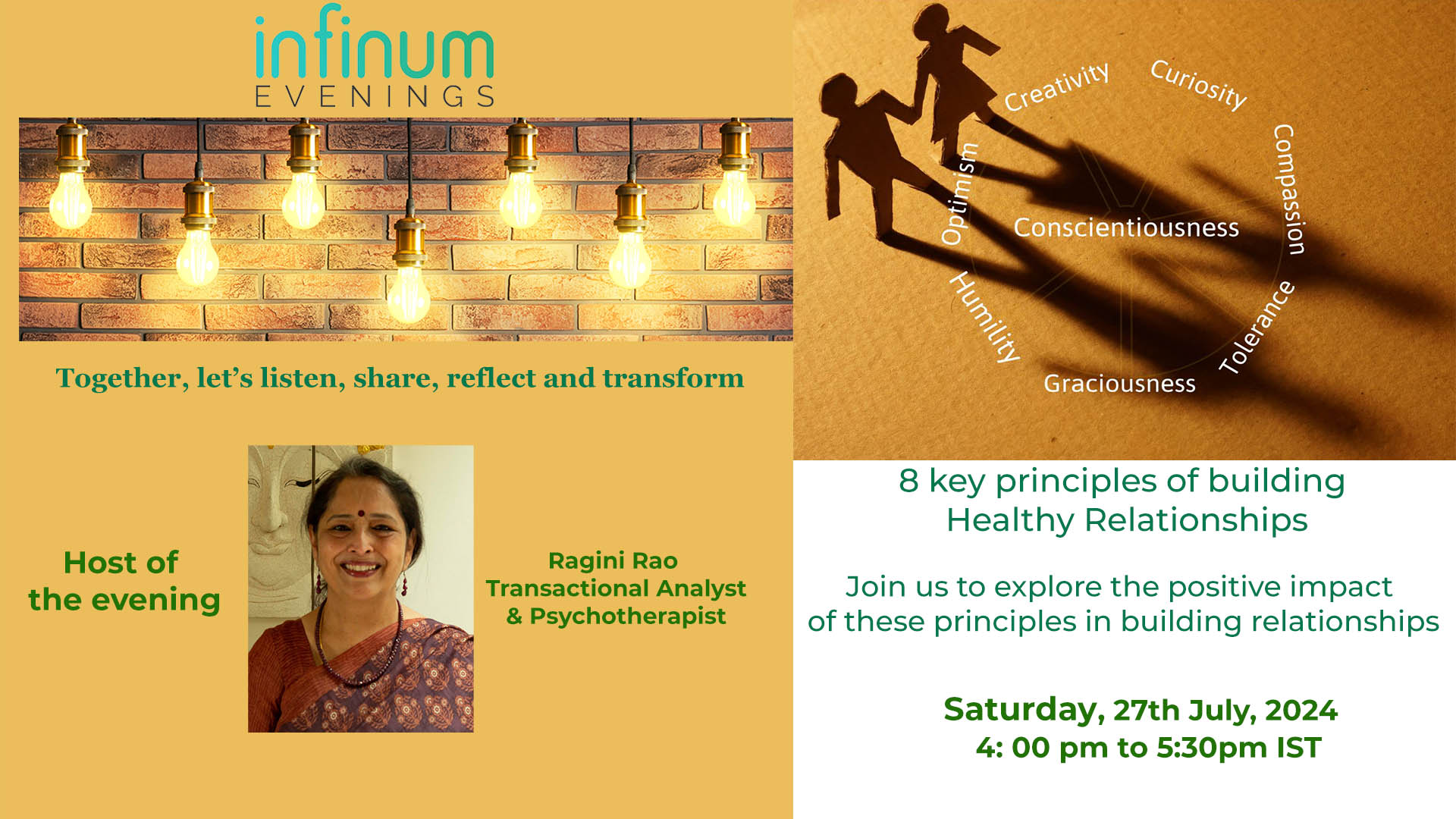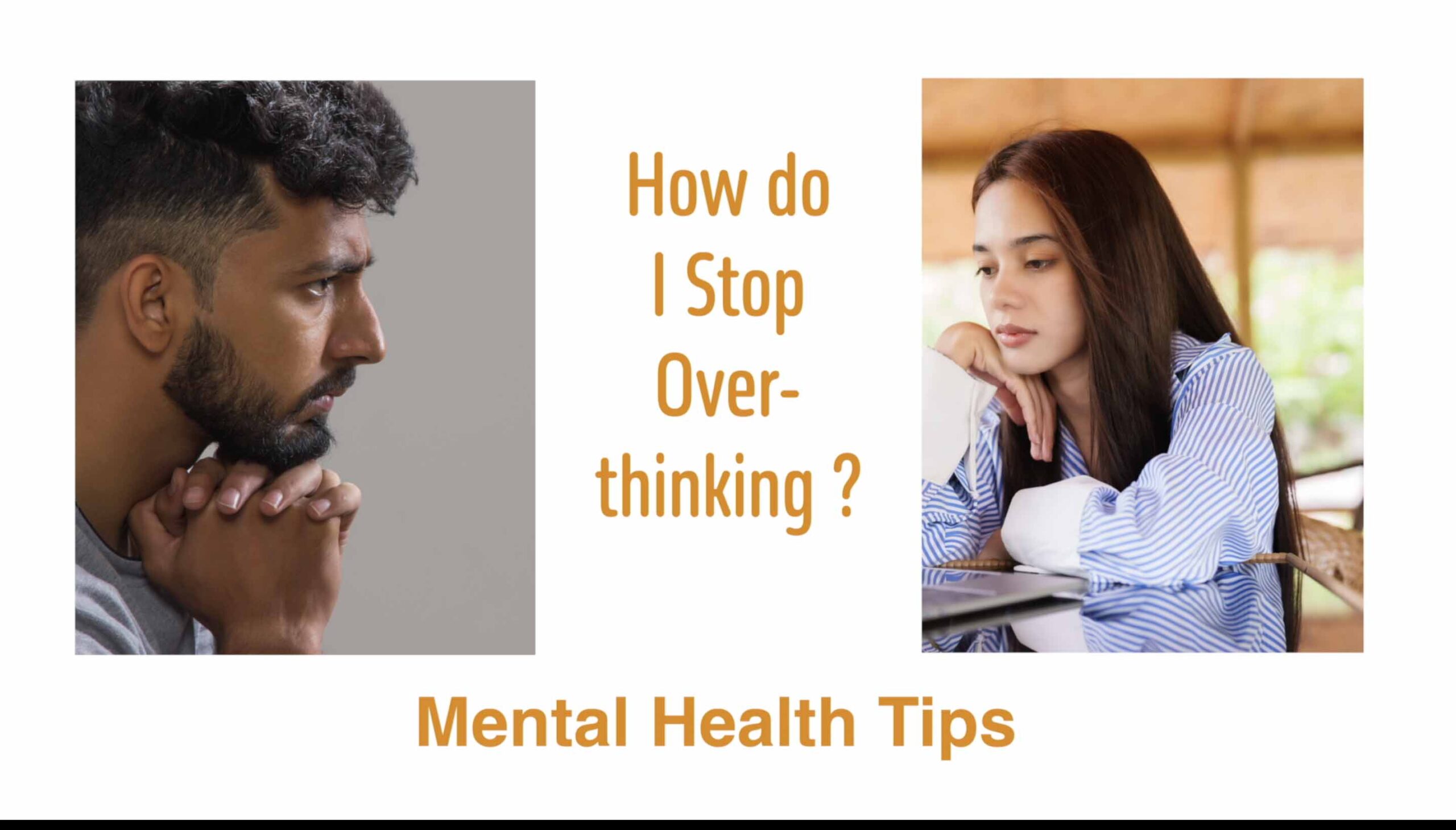Many of us spend most of our time in our heads. There is a constant stream of thoughts that keep running, and we are continuously reacting to them or doing things to make peace with our inner chatter.
As a consequence, we land up living life within mental labels. “Drama-prone, neurotic, volatile, too weak, too sensitive, imbalanced” – these are some of the words associated with those who have rich emotional experiences; and therefore, believe that our emotions are somehow a sign of weakness.
Actually, this rather narrow world is where we perceive the Self and Life—two infinite phenomena that cannot be experienced only through thinking or doing. We are human beings, not human doings!
Feelings versus Thoughts
The moment I read Eckhart Tolle (psychologist, meditation teacher, and author) describe emotions as your “body’s reactions to the thoughts in your head,” there was an instant realization that thoughts are indeed distinct from feelings.
Crying or feeling sad is a very physical experience. So is feeling angry or feeling afraid. We are so caught up in the mental content or reasons/triggers of those emotions, that we don’t pause to feel our feelings where they occur—in our physical body. I also understood that while we can choose our thoughts (mostly), we cannot control how the body reacts to them (emotions), much like how we can’t tell our body to not feel cold in low temperatures.
It also helped me realize how often we mix up feelings and thoughts. “I feel betrayed” could perhaps mean, “the thought of being betrayed” makes me “feel sad, angry, scared….” Understanding this has made me kinder to myself. It is a tad bit easier for me to look at emotions as clues rather than marks of failure in self-control or spiritual mastery.
Each emotion is telling us something. When we step back from the mental labels and simply feel them, we take back some of our power, even during the most vulnerable times.
Or, to put it another way, our emotions can act as our friends or guides, to understand ourselves better. The more we experience feelings at a “feeling level” rather than “thinking level”, we heal. We also pick the cues it sends us.
For example, if we feel angry at being mocked, by focusing on the bodily sensations, we stay away from mental chatter or “drama” about the other person’s actions or words and focus on what is important. That a boundary has been crossed and our system or being is not okay with it. What can we do to put the boundary firmly back in place?
Primary Emotions
The primary emotions as many would know are: sad, mad, glad, scared and disgust. Here we will look at sorrow or sadness, anger and fear—which often have most negative labels associated with it.
Sadness:
I’ve never been afraid to be sad. However, the last two years, I have tried (hard) to use moments of emotional pain as an invitation to simply sit with myself.
I don’t succeed too often (my husband would vouch for that). Sometimes it is a mild dip in moods; other times, tears flow freely. In yet other moments, it hits me like a wave, often triggering existential questions.
For some of us, it is a regular, passing emotion. And for some of us, persistent sadness could be a sign of unresolved trauma or a symptom of a medical condition like depression or PTSD. The key that often allows us to best hold this emotion is self-compassion.
A few tips to become kinder when you feel sad are –
- Try to differentiate your primary emotions. Are you angry or sad?
- Are there secondary emotions involved such as guilt, shame, or jealousy?
- Can you become aware of the physical feelings as they rise up?
- Can you stay with it, continue to breathe as you allow it to run its course through your body (even if for a couple of seconds) before you react?
- How can you express these feelings with “I feel” statements. How can you release or express these feelings nonverbally, too?
- If the feelings are persistent, would you like to do something about it? Is there a friend, family or professional you can talk to?
Anger:
For all the negative association anger has, as a trauma survivor, I have learned that anger can be a guardian angel and protect us from violation or injustice. Anger is our system telling us that something is not right and needs our attention. It can range from mild annoyance or irritation to rage. While expressing anger is a different discussion, the first step would be to hear what this emotion is signalling to us.
Anger often is a healthy response when a boundary has been violated. Or, when your needs or feelings are being invalidated.
- Observe how often you feel anger, irritation, annoyance, or rage on a daily or weekly basis.
- What is it trying to tell you? If you could fill up a page with “I feel angry at ____, towards ____, because ___, with ____” what would those statements be? Try this when you feel angry the next time.
- Is there a boundary violation happening that you need to address? Is there someone who is dismissing your personal need for safety, respect, dignity, or basic needs like rest, eating on time, me-time etc.
- How can you release the anger in non-destructive ways?
Journaling or sending a voice note to self can release the emotion through words in their raw form. It will also be a tool for you to later reflect and understand yourself better. (Try Whatsapp voice notes to your own number; it is safe and quick.)
Fear:
Much like anger, fear is a primitive signal that our being senses danger, whether it be a physical or psychological threat. It could range from mild worry, anxiety, obsessive thoughts, or nightmares and flashbacks. Appreciating that it is a sign of warning from our mind or body gives us room to process it with a bit more awareness and a lot more kindness.
- How often do you engage in worry through the day?
- Are there specific events/interactions that trigger anxious feelings?
- Do you experience unreasonable fear or phobia towards an object, place, or person that cannot be explained? (This could be a trauma response.)
- Do you have frequent nightmares or flashbacks that leave you unsettled? (This, too, could be an unresolved trauma response.)
- Who can you talk to when you feel overwhelmed, anxious, or scared?
- Engage in sensory anchors when you feel overwhelmed: smell a fruit or body wash; wash your face and enjoy the sensation of water on your skin, give yourself a foot massage, have a spoonful of something you enjoy and relish the subtle flavors, ask someone to rub your back.
- What quick, self-soothing and/or calming practices can you do the next time you feel triggered or overwhelmed? If you can’t think of any, read a bit or spend time identifying things that can calm you down physically. For e.g. you could hug a pillow, rock back and forth or sway side-to-side, talk to a friend, wear comfy/soft clothes, listen to songs you enjoyed as a kid.
Understanding and acknowledging our feelings and emotions is the only way to move on and take subsequent steps in an objective and logical fashion.
Please do leave your comments at the bottom and do share with others if you like this article.
















